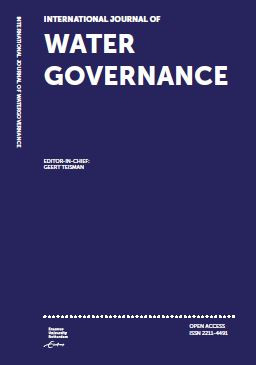Affordability in the provision of water and sanitation services
Evolving strategies and imperatives to realise human rights
Keywords:
affordability, water, sanitation, human rights, sustainabilityAbstract
Affordability in access to drinking water and sanitation services (WSS) is an essential component
for the realisation of the human rights to water and sanitation (HRtWS). The Sustainable
Development Goals aim to provide adequate WSS to the remaining billions of people still left
behind and explicitly recognise that water must be affordable to users in the variety of their particular
conditions and needs. As one of the normative content under the human rights framework,
affordability can be integrated into the broader principle of providing social equity and sustainable
services to all people. Accessing WSS implies managing a wide range of costs—not all of them
financial—that can differ in any given State or region. Indeed, difficulties are common in providing
WSS in a way that reconciles affordability and economical sustainability, which generates
tension in service provision. A particularly problematic aspect concerns applying mechanisms
that successfully attain all people in society who require help while not offering undeserved
assistance to people with comparatively lesser needs. In sum, affordability is attained through
various efforts: a coordinated institutional structure, clear legal provisions (i.e. formally recognizing
the HRtWS), contextually specific policy and plans, accountable regulatory mechanisms and
efficiently organised service providers.
Downloads
Downloads
Published
How to Cite
Issue
Section
License
Copyright (c) 2017 https://creativecommons.org/licenses/by/4.0/

This work is licensed under a Creative Commons Attribution-NonCommercial 4.0 International License.


